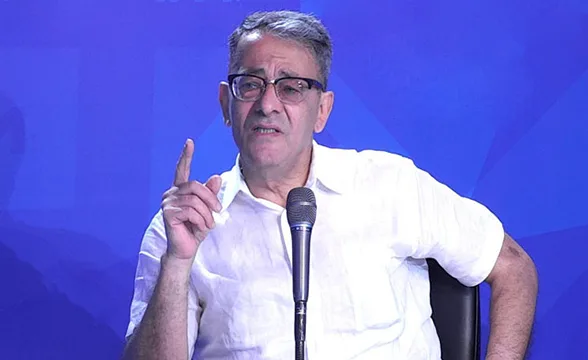Tunis, May 22, 2025 – The Indictment Chamber specializing in terrorism cases at the Tunis Court of Appeal rejected the bail request submitted by lawyer and former administrative judge Ahmed Souab. Souab was imprisoned pursuant to a warrant issued by the investigating judge of the Judicial Counter-Terrorism Pole. The warrant was issued following a public statement Souab made regarding the criminal chamber investigating the so-called “Conspiracy Against State Security Case 1.”
Ahmed Souab had expressed his position, as a lawyer and legal activist, regarding the judiciary’s handling of the “Conspiracy Case 1” case in a public statement in which he expressed a critical legal opinion regarding the judicial procedures and process.
Although his statement falls within the limits of freedom of expression guaranteed by the constitution, his statement was classified as a terrorist crime, and the investigating judge issued a warrant for his imprisonment.
Arbitrary Classification of Critical Statements as Terrorist Crimes
The Freedom for Tunisia Observatory considers the continued detention of lawyer Ahmed Souab and the refusal to release him on bail, despite the peaceful nature of his statements, a dangerous expansion of the use of the Anti-Terrorism Law to criminalize legal opinion and institutional criticism.
The Observatory affirms that classifying a public legal opinion as a terrorist crime constitutes a flagrant violation of Article 31 of the Tunisian Constitution and Article 19 of the International Covenant on Civil and Political Rights. It also threatens the independence of the legal profession, freedom of thought, and public debate.
The Freedom for Tunisia Observatory demands:
- The immediate release of lawyer Ahmed Souab;
- The dismissal of judicial prosecutions based on peaceful expressions and professional opinions;
- The cessation of the use of the Anti-Terrorism Law to settle scores with lawyers and dissidents;
- Guaranteeing the freedom of defense and judicial debate within the judicial system without threat or intimidation.
The Observatory warns that transforming legal criticism into a terrorist charge perpetuates a climate of fear within the judicial profession and undermines citizens’ confidence in the independence of the judiciary and the justice of the state.





